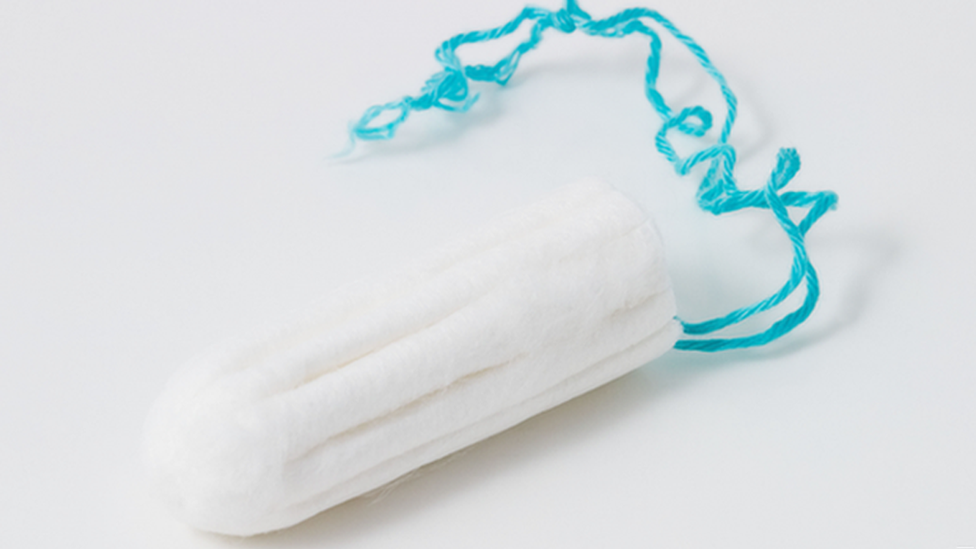Should sanitary products be free in Scotland?
- Published

In "I, Daniel Blake", single mother Katie (Hayley Squires) struggles to afford essentials items
An MSP is calling for the Scottish government to provide free feminine hygiene products - saying it is a matter of "dignity" for women who cannot afford to pay.
I, Daniel Blake - a recently released film directed by Ken Loach - includes a scene where an impoverished female character shoplifts a packet of tampons.
Scots scriptwriter Paul Laverty wrote the scene after meeting UK females who struggled to afford essential hygiene products.
A campaign has been launched by Scottish Labour MSP Monica Lennon calling for the Scottish government to provide free female sanitary products "for anyone who needs them".
Not having access to enough products to manage menstrual bleeding effectively is "associated with health risks including toxic shock syndrome", according to Ms Lennon.
'Hygiene packs'
Supporters of the campaign, including Mr Laverty, would like to see the products made available free of charge in places such as hospitals, schools and homeless shelters.
A similar proposal has already been approved in New York City.

Is this really a problem in Scotland?
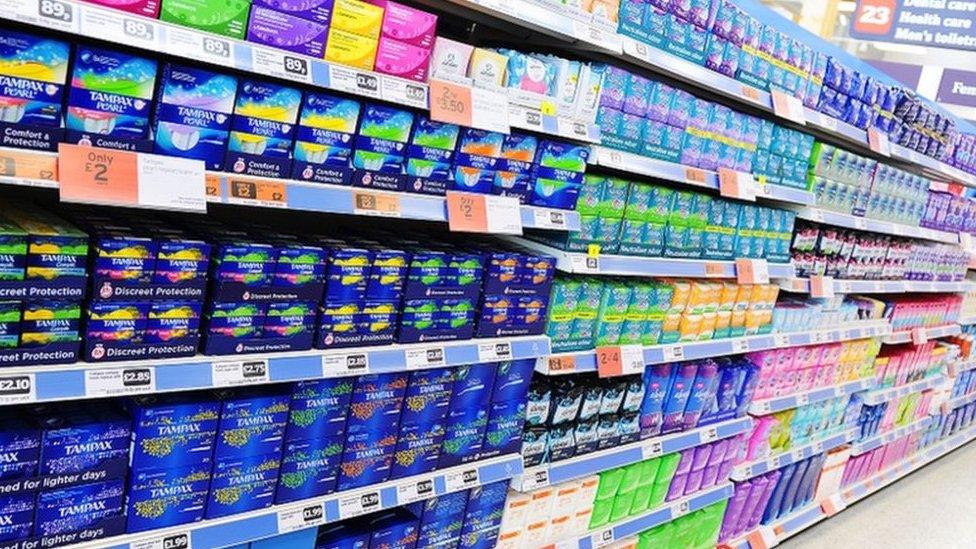
The Trussell Trust said of the 133,000 people who used Scotland's food banks in the last financial year, "thousands" received feminine hygiene products.
The charity's Scotland network manager, Ewan Gurr, said Scots were relying on food banks for essential toiletries after finding themselves in "difficult financial circumstances" - often due to benefit sanctions, delayed wages or low incomes.
The charity worker said some women had even resorted to using toilet roll, socks or newspaper because they were unable to afford female sanitary products.
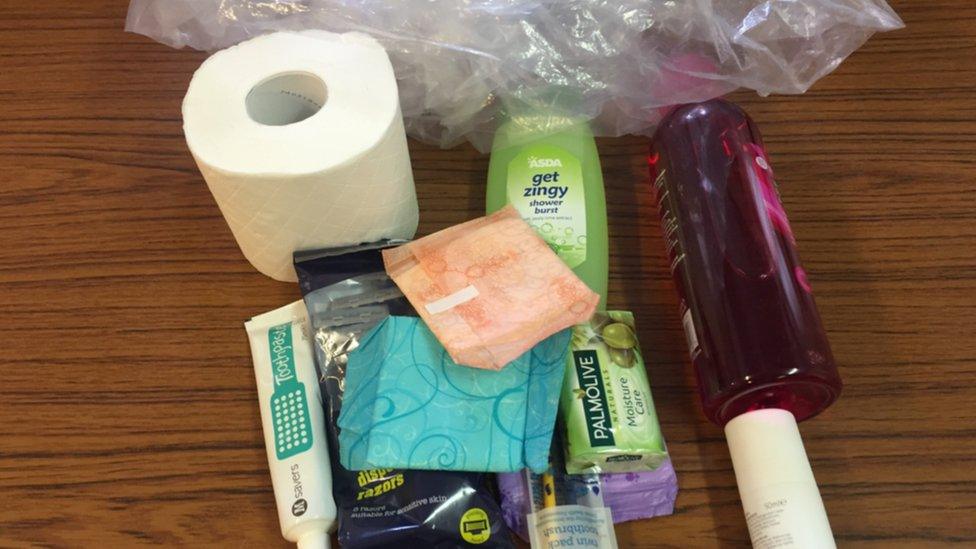
Food banks across Scotland now provide essential toiletries
Reverend Jane Howitt is the minister of Glasgow's St Rollox church - it runs two food banks: one for destitute asylum seekers; another for anyone else in a crisis situation.
On a weekly basis, both services issue feminine hygiene products to women and girls living in the Sighthill area of Glasgow.
The items are discreetly dispensed in "hygiene packs", which include other essentials such as soap, toothpaste and toilet paper.
To ensure a "low-key" service, one female volunteer is responsible for issuing the products at both food banks.
Ms Howitt said: "She is good at chatting to [service users] and finding out what they need - so that they don't have to feel embarrassed about asking."
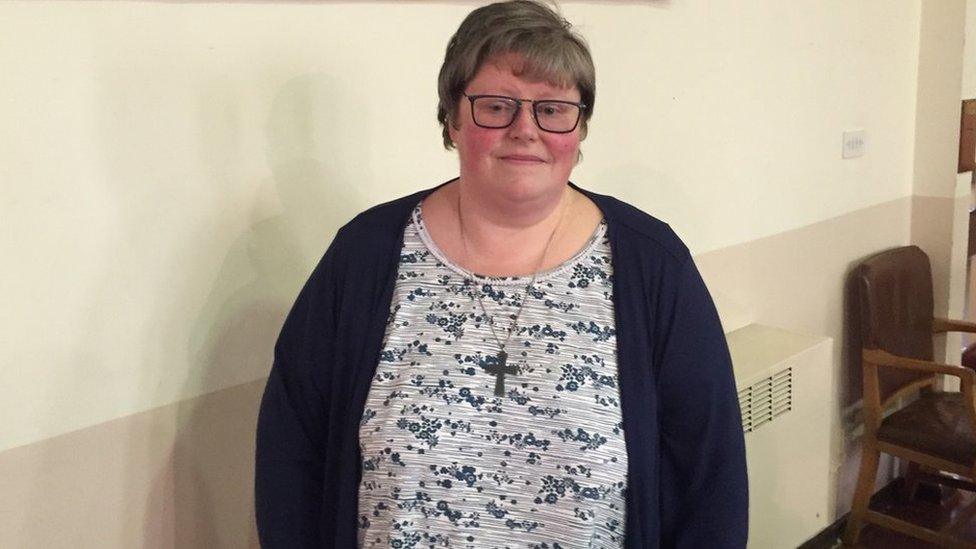
Reverend Jane Howitt runs two food banks providing feminine hygiene products
The minister said church-run food banks all over Scotland were dispatching tampons and sanitary towels - in places such as Falkirk, Blantyre, Edinburgh and West Linton.
She said food banks did not always dispense feminine hygiene products, but were now "plugging a gap" left by the government by providing such essentials.
Ms Howitt said: "If you look at the prices - you'd need to spend between £4 and £6 a month.
"If you've got nothing, that's a challenge - especially when there is more than one female in a family."
The minister said she knew of some girls in Scotland who were forced to take days off school due to not having access to sanitary products.

So what's the proposal?
Ms Lennon has suggested that free female sanitary products should be made available from dispensers installed in public places - such as in female toilets at schools and health centres.
She said she believed this would be the most effective way of ensuring the products were quickly and easily accessible.
However, the MSP could not confirm what the approximate cost to the taxpayer would be - or from which section of the welfare budget the project would be funded.
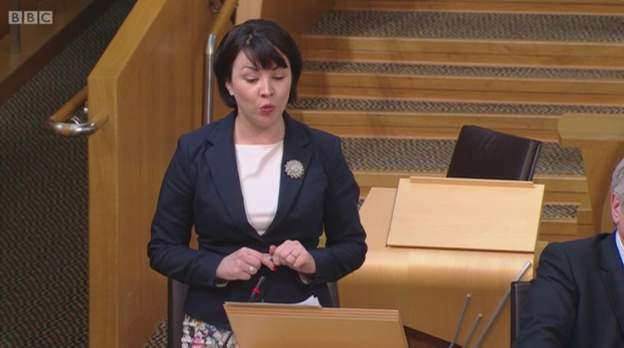
Scottish Labour MSP Monica Lennon said feminine hygiene products were a "necessity"
She told the BBC that her first priority was committing the Scottish government to conduct research into the issue of affordability of feminine hygiene products in Scotland.
The politician added: "We have growing indications that access and affordability is patchy, and not all women have access when they need them."
Supporters of the campaign for free hygiene products were also considering other proposals.
Ewan Gurr, of the Trussell Trust, said: "I would like to see [disadvantaged] women [of menstruating age] receive government support equivalent to that provided to young families in the form of "healthy start" vouchers - which can be used to buy milk, formula, fruit and vegetables."
How has the government responded?
The Scottish government has neither committed to providing free female sanitary products, nor commissioned an assessment of the affordability of women's sanitary products.
However, it has participated in ongoing discussions with charities, including the Trussell Trust, regarding the affordability of feminine hygiene products and the health challenges that can arise when women and girls do not have access to these.
A Scottish government spokesman said: "We have made significant investment in a range of other services to support people on low income or facing acute income crisis and tackle the underlying causes of poverty."
- Published10 November 2015
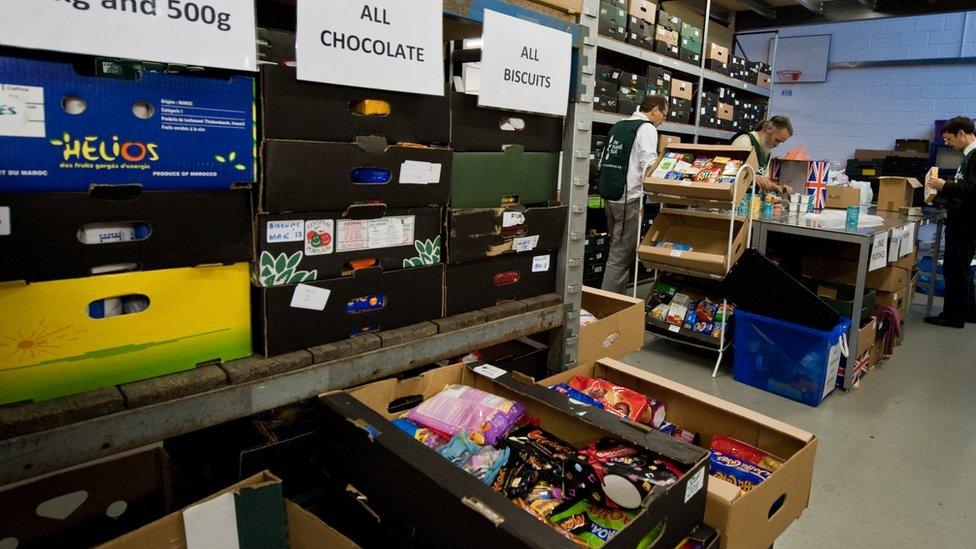
- Published22 June 2016
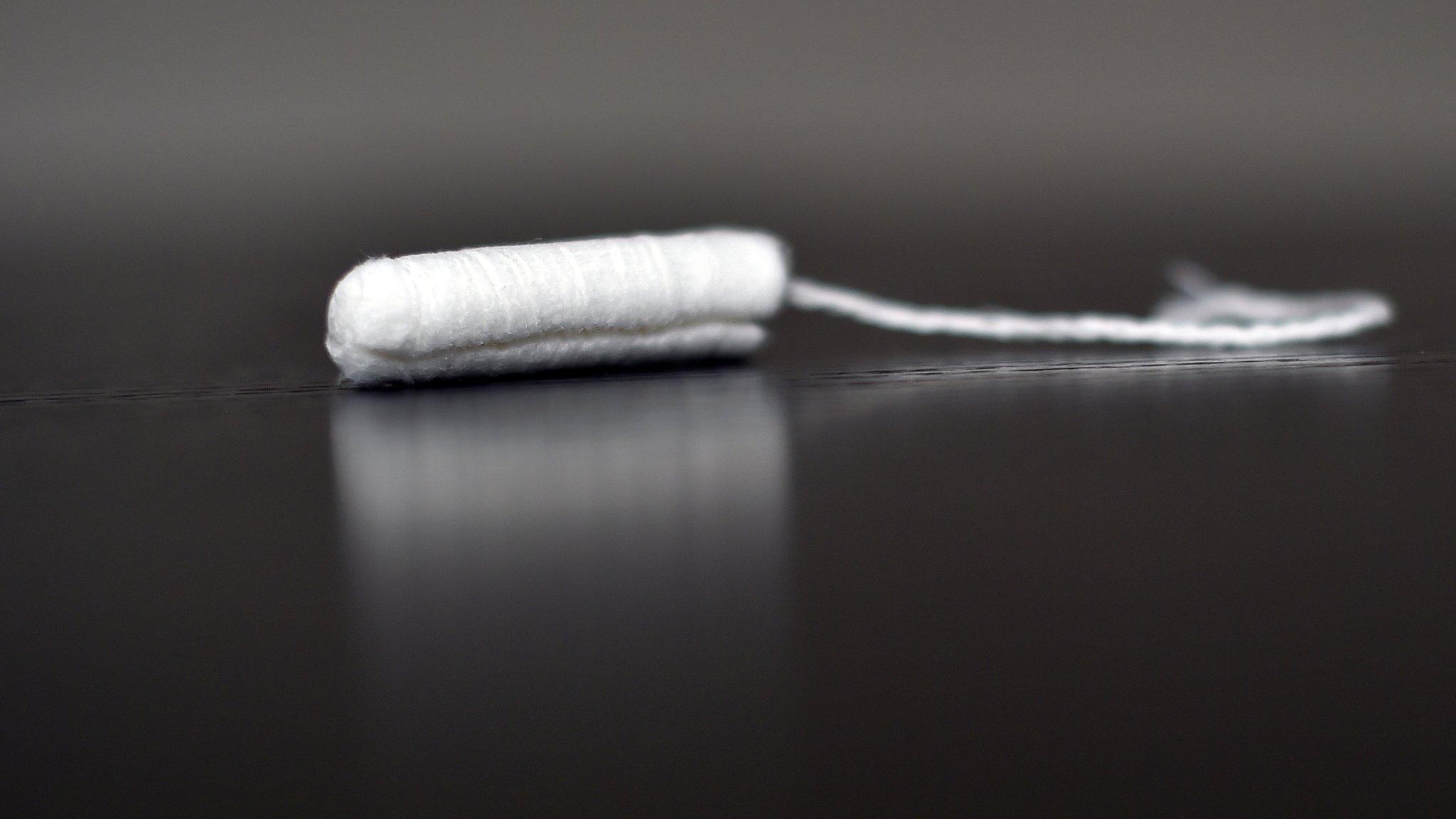
- Published3 November 2016
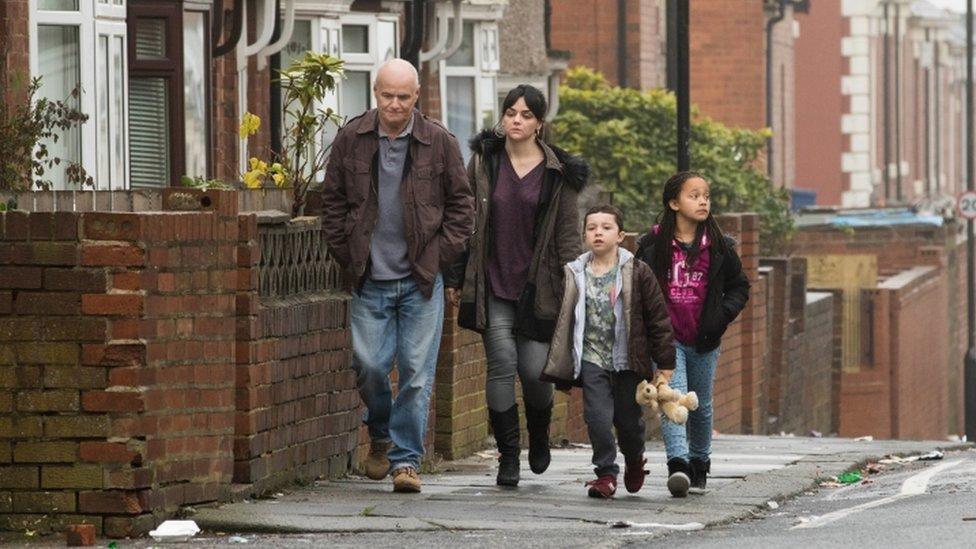
- Published27 October 2015
